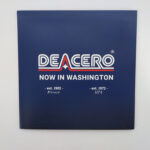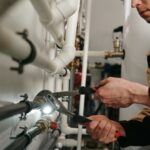Introduction
What does it take to create a universe? Not a cosmos of stars and galaxies, but one of imagination, opportunity, and learning—for four-year-olds. That’s the challenge Diane F. Grannum embraced when she stepped into the world of Universal Pre-Kindergarten (UPK) in New York City.
Shaping the minds of our youngest citizens is no small feat. It’s like building the foundation of a skyscraper—every brick matters, and one mistake can cause cracks for years to come. Diane F. Grannum knew this. Her mission was simple in theory but bold in scope: design and execute a plan that ensures every child in New York City, regardless of background, has access to high-quality, equitable early education.
Let’s dive deep into how Diane F. Grannum is helping to shape the future—one classroom at a time.
The Woman Behind the Vision
Who is Diane F. Grannum? She’s not just a name behind a policy. She’s a powerhouse educator, a community builder, and a tireless advocate for equity in early childhood education. Diane brings decades of experience from both classrooms and boardrooms, marrying big-picture thinking with ground-level execution.
Her passion? Kids. Her mission? Making sure no child is left behind—especially not before they even reach kindergarten.
What is Universal Pre-K (UPK)?
Universal Pre-K, often shortened to UPK, is an ambitious education program designed to provide free, full-day early education to all four-year-olds in New York City.
Sounds simple, right? But imagine trying to organize birthday parties for 70,000 kids… on the same day… in 5 boroughs. That’s the kind of logistical challenge UPK faces. Yet with Diane’s leadership, it’s become not just possible—but powerful.
Why Early Education Matters
Think of a child’s brain like wet cement—what gets imprinted early, stays for life. Studies show that children who attend quality pre-K programs are more likely to succeed academically and socially later in life.
Diane F. Grannum understood this well. For her, UPK wasn’t babysitting—it was nation-building.
The NYC Challenge: A Diverse City with Complex Needs
New York is a city of 8.5 million people, with over 180 languages spoken in public schools. Creating a “one-size-fits-all” program here is like trying to write a love letter in 10 dialects at once.
That’s where Diane’s deep understanding of community-specific needs came in. She didn’t push a cookie-cutter model—she customized UPK for every borough, neighborhood, and family.
Diane F. Grannum’s Role in the UPK Movement
Grannum served as a key strategist and education leader, designing frameworks that were scalable yet sensitive, robust yet responsive. She worked behind the scenes to align public policy, educational standards, and real-life community input.
Her leadership style? Collaborative, not commanding. She didn’t just “build” UPK; she co-authored it with thousands of voices.
Building a Dream: Diane’s Strategic Blueprint
What did her blueprint look like? Three words: Access, Quality, Equity.
-
Access: Ensure programs exist in every zip code.
-
Quality: Train educators in best practices, developmentally appropriate curriculum.
-
Equity: Prioritize underserved communities.
She emphasized culturally relevant content, knowing kids learn best when they see themselves in their books, teachers, and classrooms.
Inclusivity at the Core
Grannum believed that education should be like a table where everyone gets a seat. Children with disabilities, non-native English speakers, and those from marginalized communities were central to her planning—not an afterthought.
She worked with city agencies to build programs that didn’t just tolerate diversity—they thrived because of it.
Training the Teachers: A Silent Revolution
Teachers are the heartbeat of UPK. Diane F. Grannum led efforts to create professional development pipelines that didn’t just prepare teachers—they empowered them.
Workshops, ongoing mentorship, mental health training—it was all part of her plan to make teaching not just a job, but a calling again.
Empowering Communities Through Schools
Grannum saw schools as more than learning centers. To her, they were community hubs—places where parents could find resources, children could feel safe, and communities could come together.
Her UPK model encouraged partnerships with faith groups, nonprofits, and local businesses, making education a true community affair.
Overcoming Resistance and Roadblocks
Not everyone was on board. Some called UPK “too ambitious.” Others questioned the cost. But Diane didn’t flinch.
She used data to drive decisions and storytelling to win hearts. When budgets were tight, she stretched them. When politics got loud, she got louder—with purpose, not noise.
The Role of Parents in Diane’s Vision
To Diane, parents weren’t just recipients of UPK—they were co-pilots. She created feedback channels, hosted town halls, and even designed parent-led classroom experiences.
“Parents are a child’s first teachers,” she often said. “We’re just helping them continue that journey.”
Measurable Impact: Results and Recognition
Since the UPK program’s expansion, enrollment surged, attendance improved, and kindergarten readiness scores jumped across the board.
Diane F. Grannum has been recognized by educational boards, community groups, and even mayoral offices. But ask her, and she’ll say the real award is watching a child read their first sentence—or tie their own shoes.
Lessons for Other Cities
What NYC did with UPK under Diane’s influence is a case study in civic innovation. Cities from Los Angeles to Chicago have reached out, asking: “How’d you do it?”
Her answer? “Listen to the community, and build with love.”
The Future of UPK in NYC
The journey isn’t over. With changing demographics, funding shifts, and evolving educational standards, UPK must grow too.
Diane is now focused on future-proofing the program—integrating technology, supporting bilingual programs, and linking UPK to long-term student success.
Final Thoughts
Diane F. Grannum didn’t just build a program. She started a movement—a galaxy of schools, educators, parents, and dreamers who believe that early education is the key to equity.
And like any universe, it’s still expanding.
FAQs
1. Who is Diane F. Grannum?
Diane F. Grannum is an education strategist and policy advocate who played a pivotal role in developing and expanding New York City’s Universal Pre-Kindergarten program.
2. What is the goal of Universal Pre-K (UPK)?
The goal is to provide free, full-day early education to all NYC four-year-olds, ensuring school readiness and equal opportunity.
3. How did Diane F. Grannum influence UPK?
She helped design inclusive frameworks, trained educators, empowered parents, and ensured UPK met community-specific needs across all boroughs.
4. Why is early education so important?
It lays the foundation for lifelong learning. Kids who attend pre-K are more likely to succeed academically, socially, and emotionally.
5. What challenges did Diane face during UPK implementation?
From budget constraints to political resistance, Diane overcame numerous hurdles using strategic planning, data, and community engagement.
- Diane F. Grannum and NYC’s Universal Pre-K Vision
- Explore Diane F. Grannum’s bold mission to transform NYC’s UPK system and shape early education for generations to come.
- Diane F. Grannum
Related posts:
 Fitness for Mental Clarity: Unlock Your Focus and Inner Strength with DG FIT MIND
Fitness for Mental Clarity: Unlock Your Focus and Inner Strength with DG FIT MIND
 Top Carrier Oil Suppliers in India for Bulk & Wholesale Buyers
Top Carrier Oil Suppliers in India for Bulk & Wholesale Buyers
 Atlas Pro ONTV : La Révolution de la Télévision par Internet
Atlas Pro ONTV : La Révolution de la Télévision par Internet
 Luxury or Budget? Finding the Right Heathrow Transfer for You
Luxury or Budget? Finding the Right Heathrow Transfer for You
 What Is Cold Rolled Stainless Steel Coil and Why Does It Matter?
What Is Cold Rolled Stainless Steel Coil and Why Does It Matter?
 Make Impact with Commercial Signs Raleigh NC: A Strategic Guide to Business Success
Make Impact with Commercial Signs Raleigh NC: A Strategic Guide to Business Success
 PEX vs Copper in New Homes: What’s Right for You? | Creative Repipe
PEX vs Copper in New Homes: What’s Right for You? | Creative Repipe
 Essentials Hoodie Design Philosophy: Minimalism Meets Statement
Essentials Hoodie Design Philosophy: Minimalism Meets Statement







